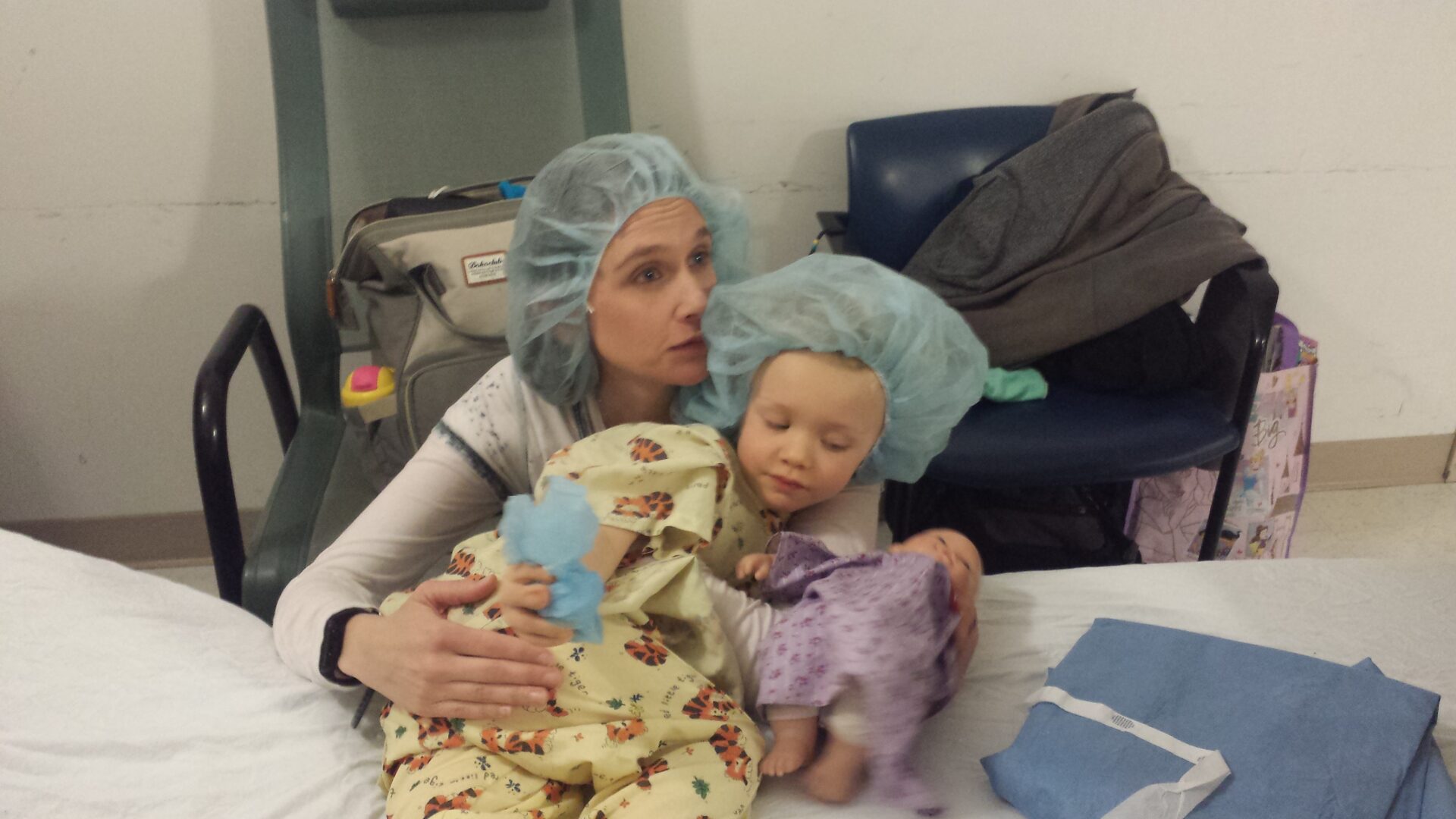Grace
A Meningitis Story
Place of Residence: Cambridge, Massachusetts
Grace’s mother, Tara, shares the story of how her 2-year-old daughter was left fighting for her life with bacterial meningitis. She wants others to know how vaccination helps keep her daughter and other immunocompromised individuals safe from deadly diseases.
How did Grace become sick?
My daughter was two years old when she was diagnosed with what her doctor thought was the flu (otherwise known as influenza). It was 2018, and it had been a tough year for seasonal flu. But she’d been vaccinated, and nobody was terribly worried about her.

At what point did you realize her illness was serious?
Throughout the weekend her condition declined. She was rapidly getting sicker, and we decided to rush her to the emergency room. At Boston Children’s Hospital, she was diagnosed with bacterial meningitis, which had led to septic shock.
What happened in the hospital?
Grace spent eight days in the intensive care unit in a medically induced coma, followed by four additional weeks of recovery. During her time in the intensive care unit, doctors discovered what had caused her to get critically ill so quickly. Grace had been born without a spleen, a rare condition known as isolated congenital asplenia (ICA). Because there is no routine screening for this condition in newborns, it often remains undetected until a severe illness occurs.

Grace’s condition makes her susceptible to certain bacteria that those with a functioning spleen can often fight off. What the doctors originally thought was a flu virus was actually a type of bacteria known as Haemophilus influenzae, which can cause a variety of mild to serious infections.
How has this disease impacted your daughter’s life?
There is no cure for ICA, but there are protocols in place to help keep Grace safe. She takes penicillin twice a day to help prevent serious infections. If she develops a fever over 101°F, she immediately goes to the nearest emergency room for a blood culture, complete blood count, and a precautionary dose of antibiotics.
Getting vaccinated is not just about protecting yourself, it's protecting our most vulnerable citizens.
Why do you think vaccination is important?
At every doctor’s appointment, we’re reminded of the critical importance of staying up to date with CDC guidelines and the latest vaccine recommendations. Vaccinations not only reduce the risk of Grace being exposed to life-threatening diseases, but they also help prevent common viruses like COVID-19 and the flu—illnesses that could otherwise lead to emergency room visits. Thanks to these precautions, Grace is able to attend school, play with friends, and enjoy all the experiences of a typical childhood. 
What advice would you give to someone who didn’t want to vaccinate themselves or their family? What do you want others to know?
Getting vaccinated is not just about protecting yourself, it’s protecting our most vulnerable citizens. The choice to not vaccinate directly impacts our healthcare system and makes the world significantly less safe for many with compromised immunity.
Tara shares her daughter’s story to raise awareness of the dangers of meningitis and the importance of community immunity for immunocompromised individuals like Grace.
BECOME A VACCINE ADVOCATE
There are lots of ways you can make a difference in your community.

